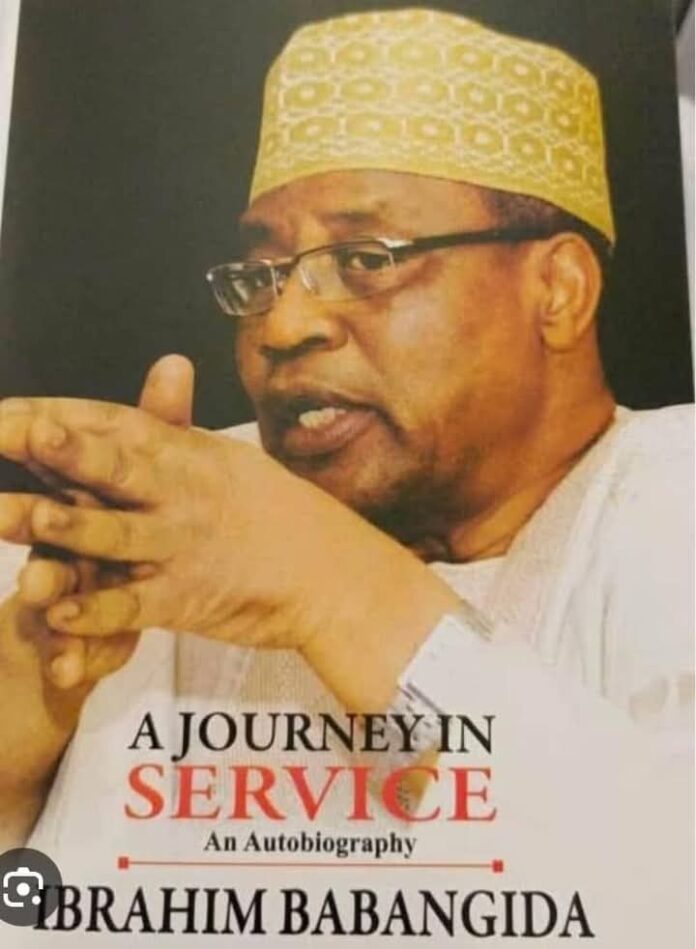By: Daure David
In recent times, there has been renewed debate surrounding the narrative of the 1966 coup in Nigeria, particularly with claims that it was an “Igbo coup.” These accusations have persisted for decades, but it is important to reassess and engage with the facts—especially now, as former military leader Ibrahim Babangida has publicly debunked this long-held misconception. It’s time to clear the air and approach this sensitive issue with an open mind.
Babangida’s statements are a much-needed reminder of how crucial it is to confront historical narratives with clarity and an evidence-based approach. The narrative that the 1966 coup was an ethnic-driven plot by the Igbo people is not only misleading but dangerously divisive. It is essential to understand the broader context of the time, the motivations of those involved, and, importantly, the facts that have been consistently ignored or misrepresented.
One of the key sources debunking this narrative is the book “Why We Struck” by Major General Martin Luther Agwai Ademoyega, a prominent participant in the coup. Published in 1981, the book was a first-hand account of the events of January 15, 1966, in which Ademoyega, a non-Igbo military officer, unequivocally states that the coup was not an ethnic attack against the north or a plot orchestrated by Igbo officers. His detailed account paints a picture of a military operation rooted in political disillusionment, dissatisfaction with government corruption, and a desire for reform—not one driven by ethnic lines.
The claim that the 1966 coup was an “Igbo coup” is not only inaccurate but is a disservice to history. This narrative has been propelled largely by political interests seeking to divide and distract. The reality is that the coup was carried out by a small group of military officers from various ethnic backgrounds, with the majority of them sharing a common objective: to end the ineffective leadership of the First Republic and restore discipline to the Nigerian military and political structures. The ethnic identities of the coup plotters were incidental, not central to the coup’s objectives.
Moreover, it is essential to recognize that the 1966 coup was followed by a counter-coup in July of the same year, which was largely influenced by northern officers. This dramatic shift in power further dismantles the idea of an “Igbo coup,” as the consequences of the coup were not confined to any particular ethnic group but affected the entire nation.
The refusal to accept these facts has fueled decades of ethnic suspicion and division. It has created a narrative that continually pits ethnic groups against one another, fostering animosity and distrust that persists to this day. It is time we as a nation rise above these baseless ethnic accusations and engage in a more responsible and constructive conversation about our past. This means acknowledging the complexity of our history and rejecting simplistic narratives that benefit no one.
The truth, as Babangida rightly pointed out, is that the 1966 coup was not an Igbo coup. It was a coup carried out by young officers seeking to address the failures of the First Republic. To continue framing it as such is not only historically inaccurate but perpetuates unnecessary ethnic tensions.
In the words of those who have fought for truth and reconciliation, “facts are sacred; sentiment is free.” We must prioritize truth over emotion if we are to build a nation that learns from its past rather than repeating the same divisive mistakes. The memory of the 1966 coup should not be marred by falsehoods but should instead be remembered for its political and military significance in Nigeria’s history.
It is time to move beyond the myths and acknowledge the facts. The 1966 coup was not an ethnic coup, and the sooner we accept this reality, the sooner we can begin to heal the wounds of the past and move towards a more united and progressive future.







